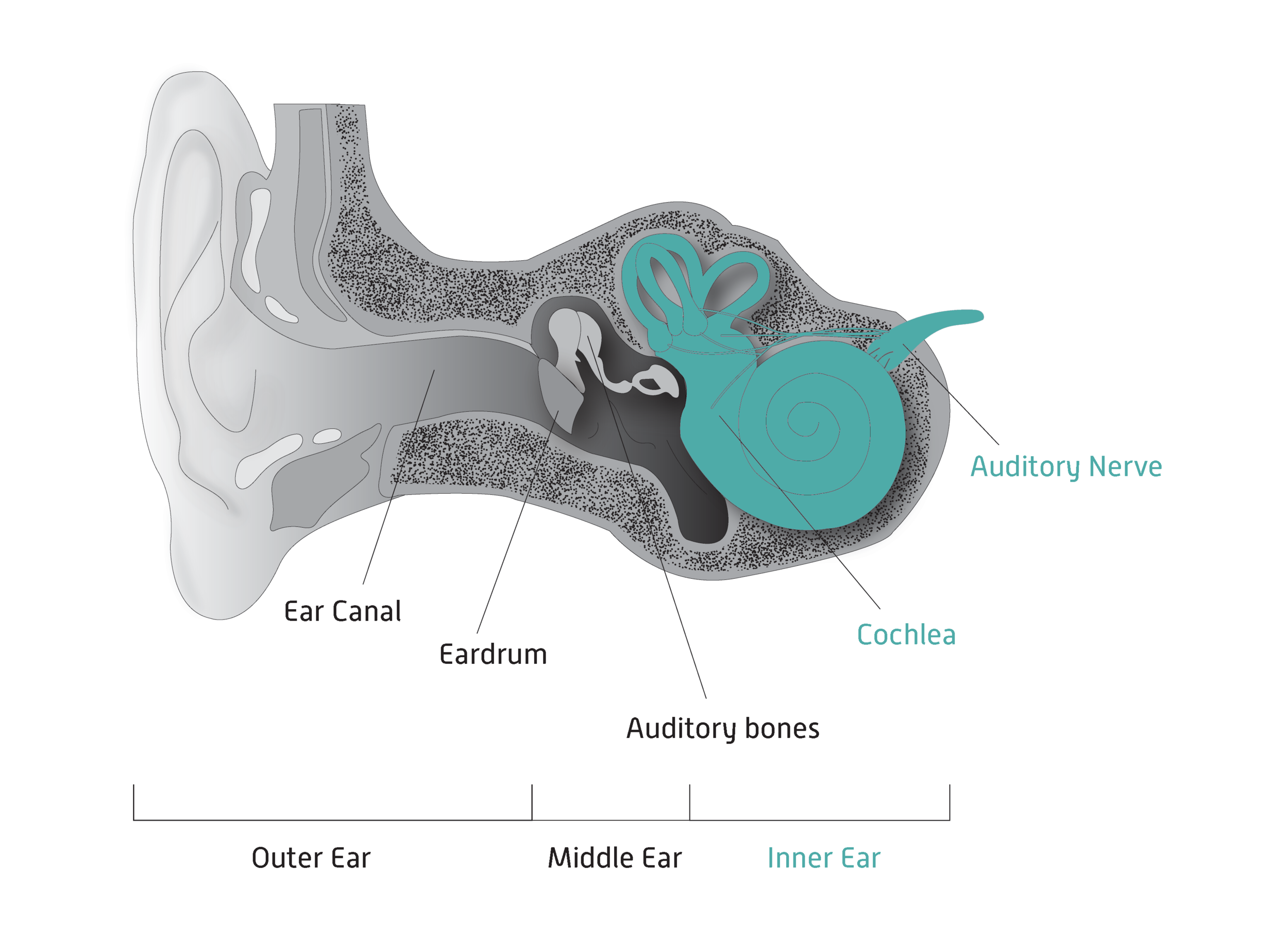HHF advises all who believe they may have hearing loss, tinnitus, and/or balance concerns to make an appointment with a hearing health professional, such as an audiologist or an ear, nose, and throat specialist (ENT or otolaryngologist). While an online hearing test can be a fast, easy, and convenient way to first assess hearing, a comprehensive evaluation will determine whether a hearing loss is present and its severity and treatment options if needed.
Types of Hearing Loss
Conductive
Sound waves are not able to efficiently go through the outer ear canal to the eardrum and the small bones of the middle ear. There is typically a reduction in sound levels or the ability to hear faint sounds. This type of hearing loss can often be corrected medically or surgically, and bone conduction hearing aids are available when medical or surgical correction are insufficient.
Sensorineural
This is caused by damage to the hair cells or spiral ganglion neurons of cochlea in the inner ear, with the result that sound is not able to be converted into electrical signals for the auditory nerve to transmit to the brain. Treatments include amplification through hearing aids or cochlear implants.
Combined (or Mixed) Hearing Loss
This is a combination of conductive and sensorineural hearing loss. The conductive component may be able to be treated and reversed medically or surgically. However, the sensorineural component is often permanent. Hearing aids can be beneficial for persons with a mixed hearing loss, but if ear infections are a cause, additional attention is needed to ensure the successful use of hearing aids.
Auditory Neuropathy
In this emerging type of hearing loss, sound is processed well by the inner ear but the transmission of signals from the inner ear to the brain is impaired. Those with auditory neuropathy, regardless of an underlying hearing loss, have trouble with speech perception or understanding speech clearly. Research is ongoing to better diagnose and define this type of hearing loss.
Hidden Hearing Loss
Hidden hearing loss, or cochlear synaptopathy, is termed “hidden” because traditional hearing tests may not detect it. Researchers believe excess noise exposure may cause a problem in the way the synapses transmitting information among cells operate, leading to difficulty discerning speech in the presence of environmental noise. There also seems to be a connection between cochlear synaptopathy and sound deprivation.

















These findings suggest that the ability to integrate what is seen with what is heard becomes increasingly important with age, especially for cochlear implant users.